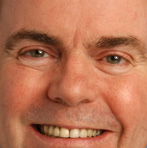© Reuters
Doctors say placebo use common
Thu Jan 3, 2008 1:25pm EST
By Julie Steenhuysen
CHICAGO (Reuters) - Placebos are a surprisingly common prescription, according to a U.S. study in which nearly half of the doctors surveyed said they had doled out a dummy pill at some point.
Researchers at the University of Chicago said on Thursday the study raises ethical questions and suggests a need for greater recognition and understanding of placebo use.
"It illustrates that doctors believe expectation and belief have therapeutic potential," said Rachel Sherman, a medical student at the University of Chicago, whose study was published in the Journal of General Internal Medicine.
The idea behind placebos is that when patients think they are getting an effective treatment, they sometimes feel better, even though the pill has no proven benefit.
They are often used in clinical trials to compare the benefits of drugs, and many times patients taking placebos show some improvement. But few studies have shown how doctors use placebos in routine practice.
Sherman and Dr. John Hickner, a family medicine professor at the University of Chicago, sent surveys to 466 internists at three Chicago-area academic medical centers. About half, or 231, responded.
Of those, 45 percent said they had used a placebo during their clinical practice, a number that surprised the researchers. But 12 percent of those surveyed said placebos should never be used.
"I think this shows that it strikes a chord among physicians. We may underestimate the body's natural healing potential," Sherman said in a telephone interview. "This shows that doctors may think that, too."
But Sherman said the practice brings up ethical issues, including whether a doctor has an obligation to provide patients with informed consent.
Of respondents who reported using a placebo in clinical practice, 34 percent said they told the patients the substance was something that "may help and will not hurt."
About a third gave other information to patients including, "this may help you but I am not sure how it works."
Nineteen percent said it was a "medication," and 9 percent called it "a medicine with no specific effect." Only 4 percent of the doctors said, "it is a placebo."
Part of the reason doctors are not forthcoming about giving a placebo is that in order for it to work, patients need to believe it can help, Sherman said.
One way around this dilemma is to ask all new patients for their consent in advance. "The patient could say no. Then you avoid any of these ethical questions," Sherman said.
(Editing by Michael Kahn and Xavier Briand)
http://www.reuters.com/article/healthNews/idUSN0323176620080103
Subscribe to:
Post Comments (Atom)

No comments:
Post a Comment